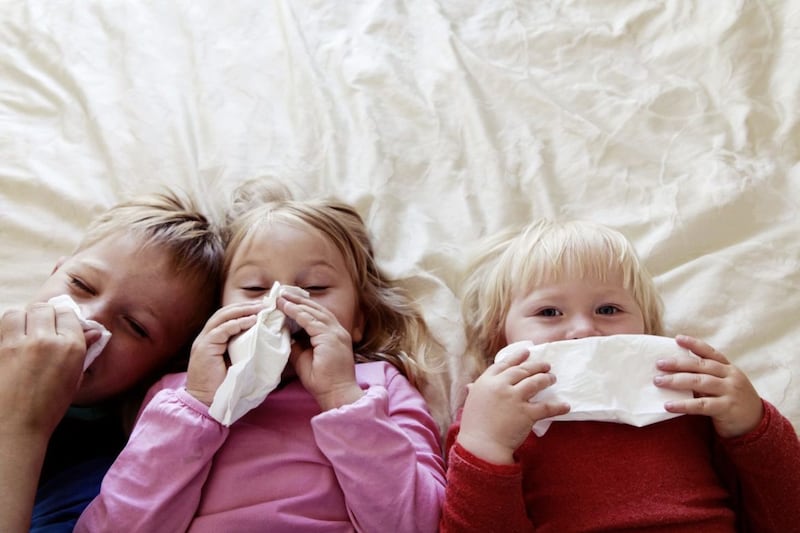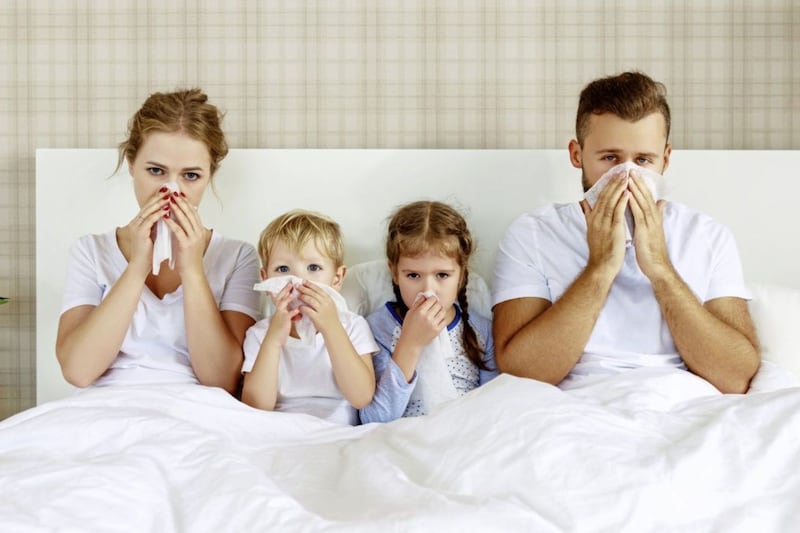FOR generations, parents have been shouting the same warning to children dashing outside without a coat or with wet hair in freezing winter weather: "You’ll catch your death of cold."
But is it just an old wives’ tale, or can you really become ill simply from being exposed to a sharp drop in temperature, even for only a few minutes?
For many years, the rise in cold and flu instances during winter has been almost entirely attributed to the fact that we spend more time indoors in each other’s company – giving viruses more opportunity to spread between us.
Now, while experts think this ‘crowding’ plays a part, a much bigger factor is the effect a sudden drop in air temperature has on the body’s ability to fight off invading viruses.
A landmark study at Yale University, in the US found that rhinoviruses – which cause the common cold – reproduce much more effectively when temperatures in the nasal cavity suddenly drop (in this case to around 33C from the usual body temperature of 37C).
This drop in temperature occurs in extremities such as the nose, when going from a warm house to the cold outside.
The 2015 study on mice revealed that viruses flourish at lower temperatures partly because the body’s immune system is less able to produce the proteins needed to destroy the invading organisms when conditions are cooler.
In the Proceedings of the National Academy of Sciences of the United States of America, the researchers wrote: "In general, the lower the temperature, the lower the immune response to viruses."
In other words, the ‘old wives’ tale’ about wrapping up warm – particularly around the head – to avoid illness may have been right all along.
"We know that when people spend more time indoors together, bugs spread," says Professor Ron Eccles, from the Common Cold Centre at Cardiff University. "But I don’t believe that’s the only reason for the increase in winter illness.
"Cold air makes the blood vessels throughout the body, including the hundreds of tiny vessels in the nasal cavity, constrict. This reduces the amount of blood – which delivers the infection-fighting immune cells – flowing into the area.
"This could be another reason why going out in the cold puts you more at risk, assuming you are actually carrying the cold virus already."
Standing still in the cold will increase the risk further, he adds.
"It’s worse if you are stationary as you are not generating body heat, which keeps the blood vessels dilated and the nasal temperature higher."
A drop in temperature also slows down movement of the cilia, tiny hair-like cells in the nasal cavity which transport mucus, and the bacteria and viruses it traps, out of the nose.
Viruses and bacteria thrive in this moist environment and, if they are not quickly ‘moved along’ by the swaying of the cilia, they can gain a foothold and cause an infection.
Professor Eccles believes there is a good reason for the age-old advice about wrapping up, as our ancestors were much more exposed to the elements than we are today as they travelled by foot or horse and would have been acutely aware of the affect cold weather could have on their health.
He advises: "Cover your nose and mouth loosely when going into the cold, especially if you are prone to asthma or chest infections. This warms the air as it’s inhaled."
Professor Ian Pavord, a specialist in respiratory medicine at Oxford University, says cold air exposure is a common trigger for wheezing and breathlessness in people with asthma.
"Scandinavian people deal with the cold a lot better than we do, by always wearing warm clothes, especially woolly hats, because the body loses most of its heat through the head," says Professor Pavord.
Going out with wet hair in winter is ‘a complete no-no’, he warns, as the head loses heat rapidly. The body also starts to lose heat, which makes the head even colder, and the brain reduces blood supply to any part of the body not considered essential, such as the nose, so it can maintain the temperature of vital organs.
© Solo dmg media








